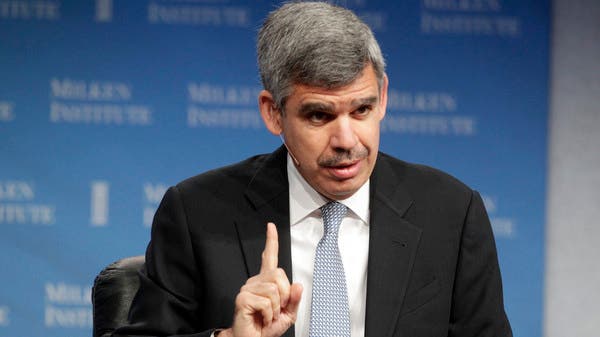Allianz Group chief economic adviser Mohamed El-Erian said the UK should backtrack on promises to cut taxes.
Referring to another market intervention on October 11 of Bank of EnglandAl-Arian said in an interview with BBC Radio that the UK is “in a very fragile situation”, especially when the Bank of England talks about financial stability, according to what Al Arabiya.net has seen.
It comes after the Bank of England warned of “material risks” to UK stability due to lower government bond prices, a key instrument in which the government raises funds, which are usually seen as investments. safer.
Concern led the bank to announce a daily purchase program until Friday 14 October of up to £ 5 billion of index-linked government bonds. The day before, the bank had already doubled the total daily amount of bonds it could buy to £ 10 billion after announcing its bond purchase program on September 28.
The instability was initially caused by the UK mini budget. Former Bank of England Governor Mark Carney said markets are sending a clear message to the UK government “that there is a limit to unfunded spending and unfunded tax cuts in this environment.”
El-Erian explained that when the yield, or interest rate, of government bonds becomes unregulated, the mortgage market begins to run into problems, causing people to worry about their economic future.
“So they start to change their behavior, and if you’re not careful, the average person won’t just worry if their children will get better in the future, but they’ll worry if they can maintain their standard of living now. And then you can unleash it. beast of economic decline is self-reinforcing and reversing work, which is very difficult to reverse.
El-Erian added that the UK needs to “go back to the first reason”, because the main cause of instability in his view was the government’s announcement of very large unfunded tax cuts.
He said: “What they got in return is only about 5% of what was announced. I don’t see an alternative, but the government says ‘we will not lower taxes now and we may lower them in the future.’ that has been talked about – spending cuts to compensate for tax cuts – is this alternative. It would actually do a lot of damage and the markets would not swallow the alternative of spending cuts. The government must go back on its promises to cut taxes. “
In addition, El-Arian suggests reintroducing the basic income tax cut, because “it’s a really expensive price”.
He said: “The Bank of England stepped in and this contradicted their anti-inflationary policies in order to stabilize the markets. It didn’t take long for the market turmoil to return, but the government should get back to the basics of the problem.”
El-Erian is not so sure that people generally believe that tax cuts in and of themselves will encourage growth, “certainly not stimulating growth in the midst of financial turmoil.
What stimulates growth is structural reforms aimed at increasing productivity and aiming for a more efficient economy. “The economist said:” These should remain and the government should not threaten them with anything else that will cause financial turmoil. “
El-Erian predicts that markets will remain “strained” as interest rates continue to rise and turbulence in mortgage markets due to declining consumer and business confidence. “All of this ultimately means not only less effective growth, but also less potential growth. This goes against what the government is trying to do.”


